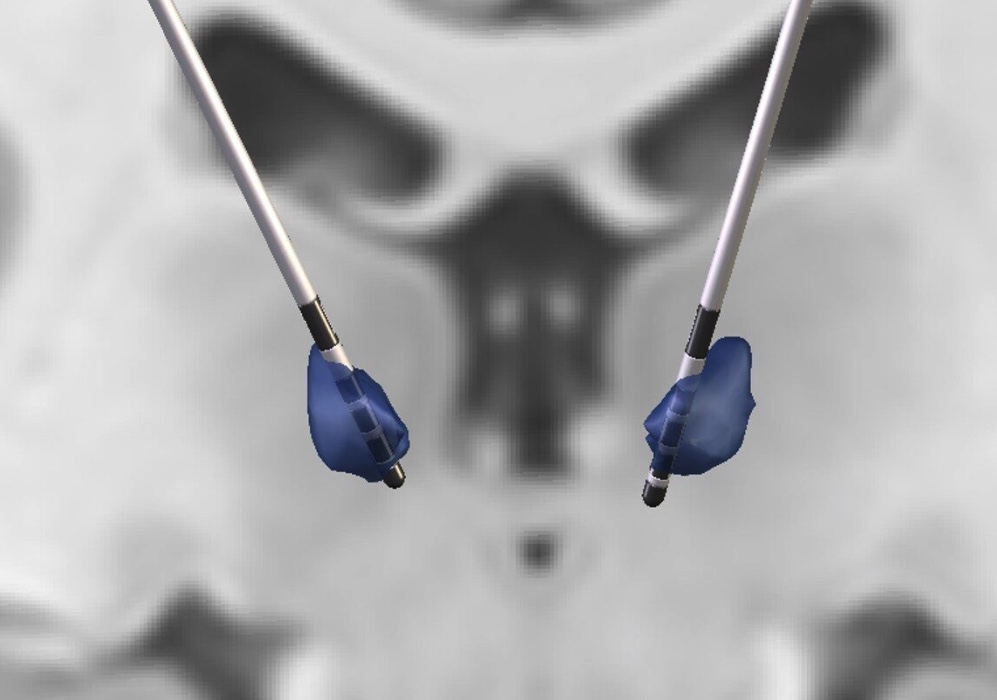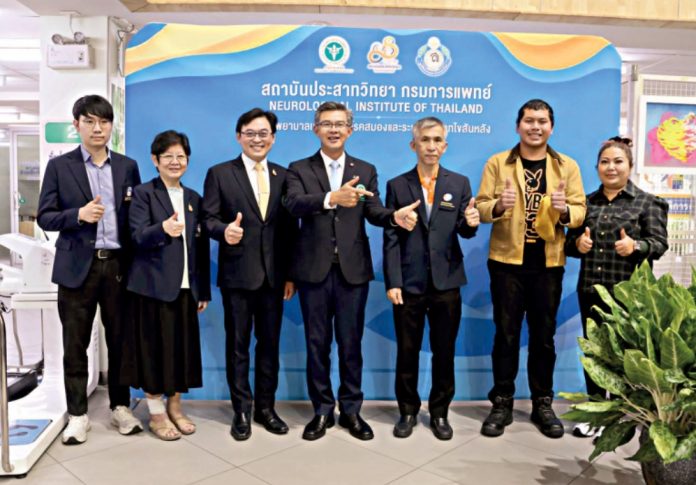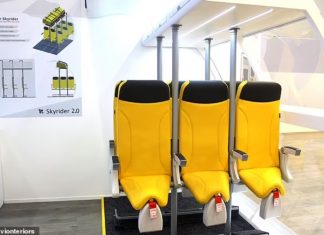สถาบันประสาทวิทยา กรมการแพทย์ สร้างประวัติศาสตร์วงการแพทย์ไทย ด้วยความสำเร็จในการผ่าตัดฝังเครื่องกระตุ้นสมองส่วนลึก (Deep Brain Stimulation – DBS) เพื่อรักษาโรคทูเร็ตต์ (Tourette’s Syndrome) เป็นรายแรกของประเทศ ที่มีอัตราการป่วยประมาณ 1% ของประชากรไทย หรือราว 7 แสนคน ในจำนวนนี้ประมาณ 10% เป็นกลุ่มที่มีอาการรุนแรง
โรคทูเร็ตต์ เป็นความผิดปกติด้านการเคลื่อนไหวที่มักเริ่มแสดงอาการตั้งแต่วัยเด็ก ผู้ป่วยจะไม่สามารถควบคุมอาการกระตุกของร่างกายหรือการเปล่งเสียงได้ ส่งผลกระทบต่อการเรียน การใช้ชีวิต และการประกอบอาชีพอย่างมาก

กระบวนการผ่าตัดครั้งนี้นำโดยทีมแพทย์ผู้เชี่ยวชาญหลายสาขา โดยระหว่างการผ่าตัดซึ่งใช้เวลาราว 5–6 ชั่วโมง ทีมแพทย์ต้องตรวจสอบคลื่นสมองแบบเรียลไทม์ และติดตั้งแบตเตอรี่ไว้ในร่างกายผู้ป่วยที่สามารถใช้งานได้นานถึง 10 ปี การรักษานี้ไม่ได้เปลี่ยนแปลงตัวโรคโดยตรง แต่ช่วยให้สมองสามารถควบคุมการเคลื่อนไหวได้ดีขึ้น ทำให้คุณภาพชีวิตของผู้ป่วยดีขึ้นในระยะยาว

หลังการผ่าตัดผู้ป่วยไม่มีภาวะแทรกซ้อนที่ทำให้เกิดความผิดปกติทางระบบประสาทอื่น อาการเคลื่อนไหวและเปล่งเสียงผิดปกติค่อย ๆ ลดน้อยลง การปรับกระแสไฟฟ้ากระตุ้นสมองตลอดระยะเวลา 2 เดือน ผู้ป่วยมีอาการนิ่งขึ้น อาการเคลื่อนไหวผิดปกติลดลง เกือบ 70% ความสำเร็จครั้งนี้ไม่เพียงเป็นความภาคภูมิใจของทีมแพทย์และสถาบันประสาทวิทยาและสมกับปณิธานของกรมการแพทย์ที่ว่า “ทำดีที่สุด เพื่อทุกชีวิต”
The Neurological Institute of Thailand, under the Department of Medical Services, has made medical history by successfully performing the country’s first Deep Brain Stimulation (DBS) surgery to treat Tourette’s syndrome. The condition affects approximately 1% of the Thai population—about 700,000 people—with around 10% of cases considered severe.
Tourette’s syndrome is a neurological movement disorder that typically begins in childhood. Patients experience involuntary motor tics and vocal outbursts, which can significantly impact education, daily life, and professional opportunities.
This groundbreaking procedure was carried out by a multidisciplinary team of medical specialists. During the 5–6-hour operation, real-time brain wave monitoring was used to ensure precise placement of the implant, and a battery-powered stimulator—designed to last up to 10 years—was inserted into the patient’s body. While the treatment does not cure Tourette’s syndrome itself, it helps regulate abnormal brain activity, enabling better motor control and significantly improving the patient’s quality of life.
Post-surgery, the patient experienced no neurological complications. Over the following two months, continuous adjustments to the stimulation level led to a steady reduction in involuntary movements and vocal tics—by nearly 70%. This achievement stands as a proud milestone for the medical team and the Neurological Institute, reflecting the Department of Medical Services’ commitment to its guiding principle: “Doing our best for every life.”
#TouretteSyndrome #Thailand #MedicalBreakthrough #updatenews #TheThailandder
ที่มา : www.dailynews.co.th
















